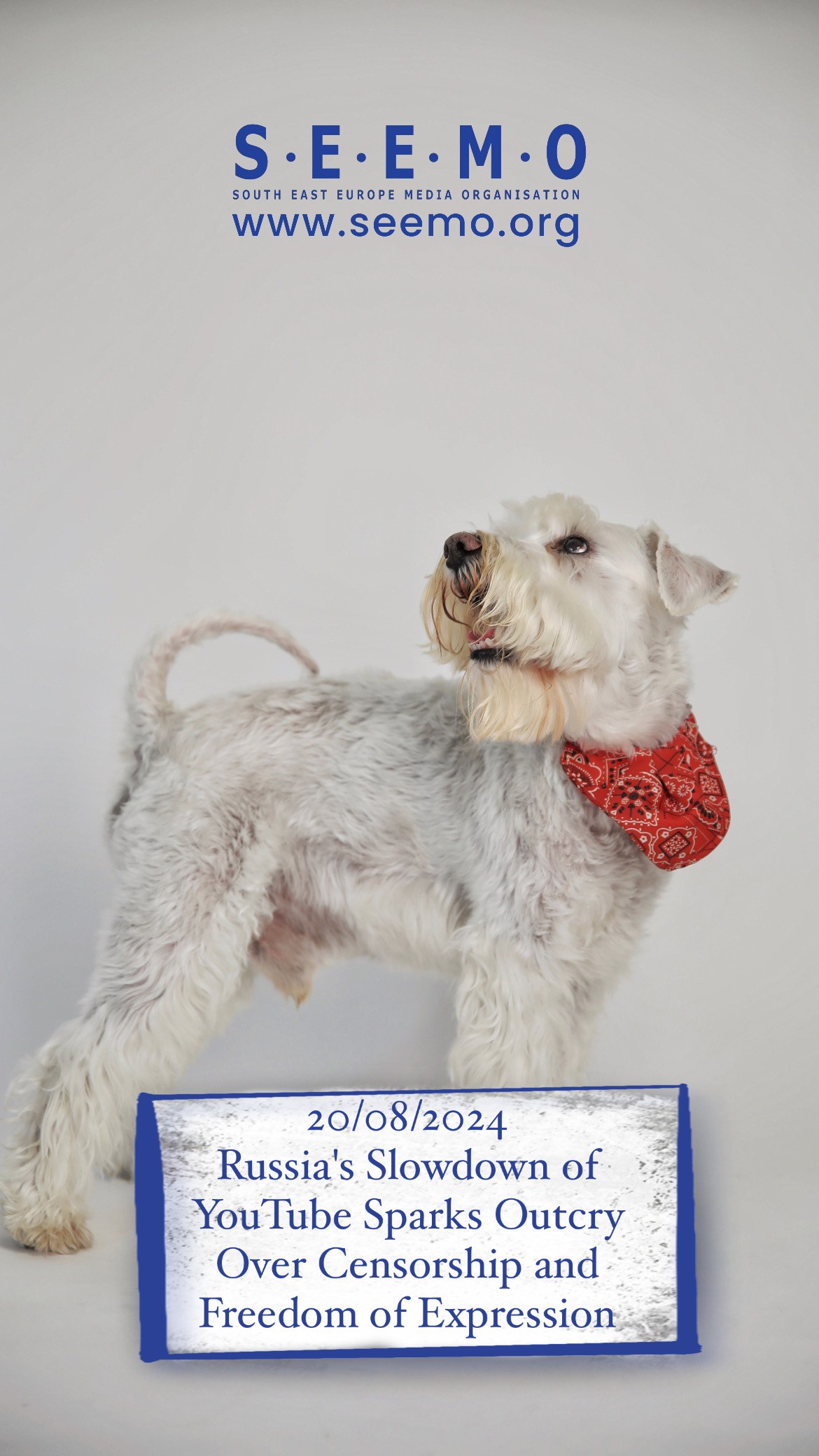On 8 August 2024 Russian authorities began widespread slowdowns of YouTube (https://www.youtube.com/), making the platform nearly inaccessible without the use of additional virtual private networks (VPNs). This move, part of a broader government crackdown on independent media, has raised additional serious concerns about censorship in the country.
According to several YouTube Russian users also the browser version of YouTube does not open on desktop PCs in Russia. The YouTube mobile application on Android continues to work.
This action follows an announcement in late July, where Russian officials revealed plans to significantly reduce YouTube’s performance, with speeds expected to drop by up to 70%. According to some local sources the new speed is 128 kilobits per second. As result users have informed that videos freeze up for several seconds or that they can use only audio versions over YouTube, but not videos.
Russian operator Rostelecom informed about technical issues in the operation of equipment owned by Google. Rostelecom said, that Google was to be blamed for technical problems, as it was not renovating its equipment in Russia,
The stated goal was to pressure YouTube into reinstating blocked Russian propaganda channels. Critics, however, view this as a deliberate attempt to push users toward platforms like RuTube and VKontakte, further tightening the government’s grip on the flow of information.
Head of the State Duma’s Information Policy Committee (Государственная Дума), allegedly defended the decision as a necessary measure against what he described as “YouTube’s foreign management” that allegedly violated Russian laws. The day after the announcement, Russian authorities attributed the slowdown to outdated Google (https://www.google.com/) equipment—a claim that Google has denied.
Since the full-scale invasion of Ukraine in February 2022, Russian authorities have blocked numerous independent media outlets, imposed fines on companies for not removing content labeled as “fake news” about the war, and pressured Google to restore state media channels on YouTube. Despite these efforts, YouTube has remained accessible, serving as a platform for opposition voices and independent journalism.
The recent slowdown of YouTube has sparked widespread public discontent, with many viewing it as a deliberate government strategy to control online content. The Digital Rights Center (Центр цифровых прав – https://drc.law/) has raised alarms, warning that this move forces content creators to shift to Russian-controlled platforms, where their work is subject to stricter censorship. This shift could result in the deletion of videos or even entire channels, leaving content creators vulnerable to government moderation.
YouTube has stated that the access issues in Russia are not due to any actions or technical problems on their end. The company acknowledged reports of people struggling to access the platform in Russia.
Russian officials are supporting the public in Russia to use Rutube, a Russian video platform founded 2006 and owned by the state controlled Gazprom Media. In August 2024, Rutube launched a function for transferring videos from YouTube. According to Rutube an author can transfer up to 2,000 videos at once.
The South East Europe Media Organisation (SEEMO) condemns the Russian government’s deliberate slowdown of YouTube as a blatant act of censorship, undermining the free flow of information and silencing independent voices. The restriction of access to one of the few remaining platforms for free expression in Russia is a serious violation of press freedom and a concerning step toward further isolating the Russian public from global discourse. SEEMO will closely monitor this situation and continue to advocate for the protection of journalistic freedom and the rights of individuals to access uncensored information.
South East Europe Media Organisation (SEEMO) is a regional non-governmental, non profit network of editors, media executives and leading journalists in Southeast, South, East and Central Europe. SEEMO members are in Albania, Armenia, Azerbaijan, Belarus, Bosnia-Herzegovina, Bulgaria, Croatia, Cyprus, Czech Republic, Estonia, Georgia, Greece, Hungary, Kazakhstan, Kosovo, Kyrgyzstan, Latvia, Lithuania, Malta, Moldova (with the territory of Transdnestria), Montenegro, North Macedonia, Poland, Romania, Russia, Serbia, Slovakia, Slovenia, Tajikistan, Turkmenistan, Türkiye / Turkey, Ukraine and Uzbekistan. Austria, Italy, Vatican and San Marino have a special status in SEEMO. SEEMO has over 3000 individual members, and additional media as corporate members.
#fyp #mediafreedom #seemo #freespeech #southeasteuropemediaorganisation #ngo #journalist #russia #youtube #SEEMO #pressfreedom #mediafreedom #freemedia

